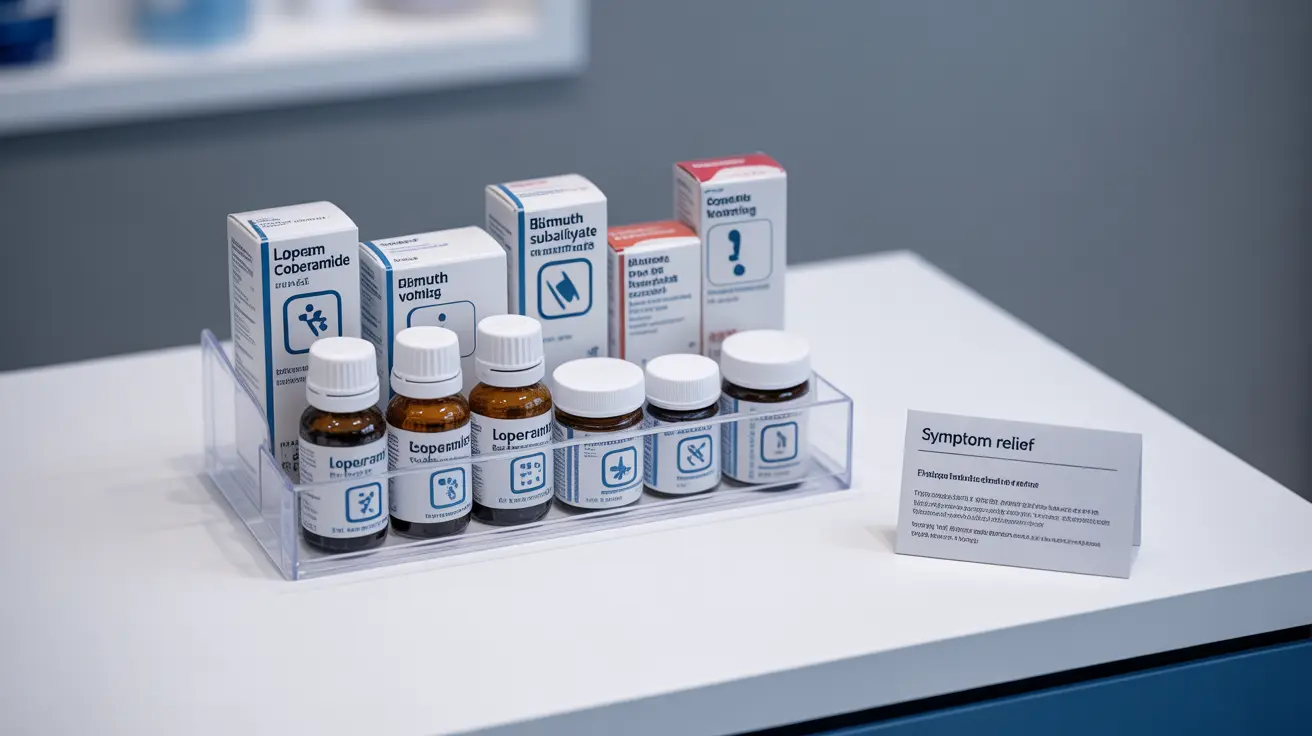When you're dealing with diarrhea and vomiting, finding the right treatment can provide much-needed relief. Understanding which medicines are most effective and when to use them is crucial for managing these uncomfortable symptoms safely and effectively. This comprehensive guide will help you make informed decisions about treatment options and preventive measures.
Understanding Over-the-Counter Treatment Options
Several effective over-the-counter medications are available for treating diarrhea and vomiting. The two main categories include:
Antidiarrheal Medications
Antidiarrheal medicines work by slowing down bowel movements and reducing fluid loss. Common options include:
- Loperamide (Imodium)
- Bismuth subsalicylate (Pepto-Bismol, Kaopectate)
- Attapulgite
Anti-nausea Medications
For vomiting relief, several medications can help control nausea:
- Dramamine (dimenhydrinate)
- Bonine (meclizine)
- Ginger supplements
Choosing the Right Medicine
The best medicine for your situation depends on several factors, including your symptoms' severity and underlying cause. For bacterial infections, antibiotics may be necessary, while viral infections typically resolve on their own with supportive care.
When to Use Loperamide (Imodium)
Loperamide is most effective for:
- Acute, non-infectious diarrhea
- Traveler's diarrhea
- Managing chronic diarrhea
- Reducing frequency of bowel movements
When to Use Bismuth Subsalicylate
Bismuth subsalicylate works best for:
- Mild to moderate diarrhea
- Upset stomach
- Nausea and indigestion
- Reducing bacterial growth
Managing Dehydration
Preventing and treating dehydration is crucial when experiencing diarrhea and vomiting. Key strategies include:
- Drinking clear fluids regularly
- Using oral rehydration solutions
- Consuming electrolyte-rich beverages
- Avoiding caffeine and alcohol
Special Considerations for Children
Treatment approaches differ for children. Always consult a healthcare provider before giving children anti-diarrheal medications. Focus on:
- Maintaining hydration
- Using pediatric electrolyte solutions
- Monitoring symptoms closely
- Following age-appropriate dosing guidelines
Frequently Asked Questions
What are the most effective home remedies for treating diarrhea and vomiting quickly?
The most effective home remedies include staying hydrated with clear fluids, following the BRAT diet (bananas, rice, applesauce, toast), consuming ginger tea for nausea, and getting plenty of rest. Small, frequent sips of water or oral rehydration solutions can help prevent dehydration.
How do I know if I should take Imodium or Pepto-Bismol for diarrhea relief?
Choose Imodium (loperamide) for severe diarrhea when you need stronger relief, particularly for frequent watery stools. Opt for Pepto-Bismol (bismuth subsalicylate) for mild diarrhea combined with nausea, indigestion, or upset stomach. If you're uncertain, consult a healthcare provider.
What are the key differences between loperamide and bismuth subsalicylate in treating diarrhea?
Loperamide works by slowing down intestinal movement and reducing fluid secretion, making it more effective for severe diarrhea. Bismuth subsalicylate has additional anti-inflammatory and antibacterial properties, making it suitable for mild diarrhea with stomach upset and nausea.
Can I use over-the-counter medications like Imodium for children with diarrhea?
Over-the-counter anti-diarrheal medications are not recommended for children under 12 without consulting a healthcare provider. Focus on preventing dehydration using pediatric electrolyte solutions and proper nutrition. Always follow age-specific dosing guidelines when medication is prescribed.
What are the best practices to prevent dehydration when experiencing diarrhea and vomiting?
To prevent dehydration, drink clear fluids frequently in small amounts, use oral rehydration solutions, consume electrolyte-rich beverages, and avoid caffeine and alcohol. Monitor urine color and frequency, and watch for signs of severe dehydration such as extreme thirst, dry mouth, and decreased urination.




